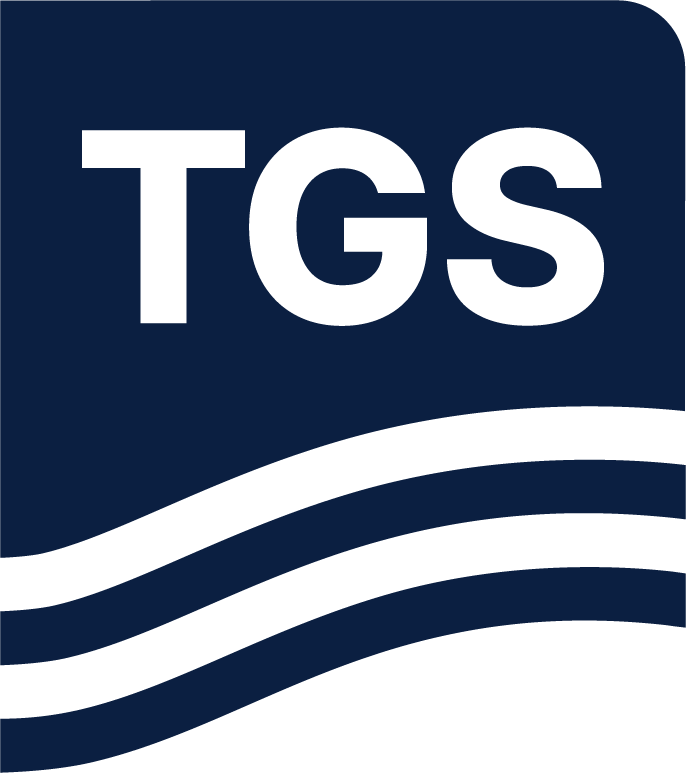Modern Slavery Statement
TGS 2022 Modern Slavery Act Transparency Statement
Introduction
As noted in our Statement of Values, TGS will not use or support child labour or slavery in any of our offices or operations. TGS also works with contractors and vendors to ensure that field and seismic vessel operators abide by the UN Universal Declaration of Human Rights and that they do not use or support child labour or slavery in their operations for TGS.
TGS' structure, its business and its supply chains
TGS provides global subsurface data products and services to the energy industry through investments in multi-client data projects in frontier, emerging and mature markets worldwide, as well as ocean bottom node (OBN) acquisition services and equipment. Our extensive onshore and offshore libraries include seismic data, magnetic and gravity data, multibeam and coring data, digital well logs and production data from deep water offshore to conventional and unconventional onshore plays worldwide. Additionally, we offer advanced processing and imaging services, interpretation products and data integration solutions. As a result of the acquisition of Magseis Fairfield ASA in October 2022, we also offer services, technology and equipment to acquire seismic data using ocean bottom nodes and related techniques and methods. In 2022, TGS substantially expanded its New Energy Solutions business line to include data products and services that support more sustainable energy systems.
TGS' corporate headquarters are located in Oslo, Norway and its operational headquarters are in Houston, USA. We have other main offices in Calgary, London, Rio de Janiero, and Perth with employees also in other cities around the globe.
TGS sets policies at the group level and are committed to ensuring that there is no modern slavery or child labour used in its operations or by its supply chain. TGS works with a small pool of suppliers, which are subject to detailed due diligence, and our workforce is made up of employees who are highly skilled and highly trained.
Human rights risks are reviewed and assessed annually as part of TGS’ annual risk enterprise program, which includes participation from key employees across all offices and departments, as well as TGS’ leadership and board of directors.
TGS' policies in relation to slavery and human trafficking
TGS’ Statement of Values and Code of Conduct (available on our Sustainability page), define the expectations of ethical behaviour that is expected of TGS’ board of directors, employees, vendors and suppliers. TGS embraces diversity and equality in its workforce and suppliers, abides by labour and employment laws, ensure safe and healthy working environments, and has zero tolerance for corruption and bribery.
TGS will not use or support child labour or slavery in any of its offices or operations. We ensure responsible labour practices for our employees and endeavour to work with our business partners and suppliers who share and value this principle in their operations.
TGS remains committed to the UN Universal Declaration of Human Rights and undertake to operate in recognition of the freedom, the rights, the dignity and the worth of the human person and promotion of equality irrespective of gender, race or religion. TGS abides by the labour laws of each country where it operates and contractually requires its suppliers to do the same. TGS continues to use its TGS Human Rights Policy as a guide in our commitment to ensuring compliance with human rights, modern slavery and labour applies not only to all our operations but to our key vendors and suppliers. TGS incorporates into its strategy, culture, and operations the principles on human rights, labour, environment and anti-corruption.
TGS provides multiple avenues for TGS’ internal and external stakeholders to report potential non-compliance with the law or TGS’ Code of Conduct, including through the TGS hotline, which allows for anonymous reporting, directly to the Compliance department or indirectly through his or her manager. TGS prohibits retaliation and investigates all potential violations of the law or the Code of Conduct. Our board receives quarterly reports and updates on compliance violations reported at TGS. In 2022, TGS had zero reported incidences of human rights violations, including any allegations of child labour or modern slavery, in its business or that of its supply chain.
TGS' due diligence processes in relation to slavery and human trafficking in the business and the supply chains
TGS expects its partners and third parties (suppliers, vendors, agents and consultants) to share its commitment to ethical, lawful conduct, and takes a zero-tolerance position with third parties who fail to understand and abide by their compliance obligations. This includes conducting risk-based due diligence on partner and third-party relationships, including understanding their ownership structure, directors, business relationships and reviewing their human rights and modern slavery policies and procedures. TGS’ supplier due diligence questionnaire includes specific questions regarding suppliers policies with respect to human rights and modern slavery, how it manages human rights issues in its supply chain, and disclosure on any human rights or modern slavery investigations, lawsuits or violations.
TGS continues to implement contractual language with suppliers and vendors to expressly require suppliers and vendors to comply with human rights, modern slavery and labour laws and ensure their supply chains do the same, in their work for TGS. TGS requires suppliers and vendors to notify TGS of any potential or actual violation of these laws in their operations and to adhere to TGS’ Supplier Code of Conduct and TGS’ Human Rights Policy. TGS includes the right to audit the supplier or vendors practices to ensure compliance with the above and to terminate the agreement with that supplier or vendor for failure to comply with the law.
Finally, TGS’ compliance certification for high-risk third parties, suppliers and vendors expressly includes certification of compliance with human rights, labour, and modern slavery laws in addition to certifying compliance with TGS’ Human Rights Policy and Supplier Code of Conduct.
Identifying and managing the risk of slavery and human trafficking taking place
TGS does not have offices or employees in any of the countries that rank high or even moderate on the Global Slavery Index. The products that TGS creates (energy data and related intelligence) are not textiles or goods that are mass produced in factories or warehouse settings. The acquisition and processing of geoscience data requires a highly educated and skilled workforce. TGS does acquire data in regions that may rank higher on the Global Slavery Index, but to do so, we have to rely upon skilled and certified workers provided through a limited number of qualified suppliers that have been vetted by TGS and with whom TGS has worked with around the globe. These qualified suppliers are subject to the TGS’ due diligence process and contractual obligations outlined above.
TGS analyses human rights and modern slavery risks within the organization and our supply chain as part of our annual corporate risk enterprise program. In 2021, TGS conducted a compliance assessment of its employees that included questions aimed at understanding our employees’ perception of human rights and modern slavery risks at TGS, and experience with incidents of modern slavery or violations of human rights laws in the past year. Approximately 78% of our employees participated with over 99% of respondents indicating that they had not witnessed any incidents of human rights violations or modern slavery at TGS. Due to the significant organizational changes and growth in workforce the company underwent globally in 2022, the Company plans to conduct a new human rights assessment in 2023. Finally, all TGS employees are required to comply with TGS’ Statement of Values and Code of Conduct, both of which emphasize that TGS will not tolerate instances of modern slavery or human trafficking in our offices, our operations or our supply chain.
Training on Human Rights and Modern Slavery
All employees completed TGS’ annual compliance training, which includes specific modules on both human rights and modern slavery, in 2022.
Looking to the Future
We are constantly working to understand the risks of modern slavery associated with our industry and improving our processes and policies. We will continue to include and build upon human rights and modern slavery training in our annual employee Code of Conduct training. We will continue to ensure our supply chain works to eradicate human rights abuses through our robust due diligence approach for suppliers, which specifically addresses human rights, labour practices and modern slavery, supplier certification processes, and contracts with our suppliers. In 2022, TGS will continue to engage with our stakeholders through customer surveys, meetings, community and industry events to understand their perception and concern related to human rights and modern slavery risks in our industry and supply chain.
Approved and adopted by TGS’ Board of Directors on March 24, 2023:
Christopher Finalyson
Chairman of the Board – TGS


